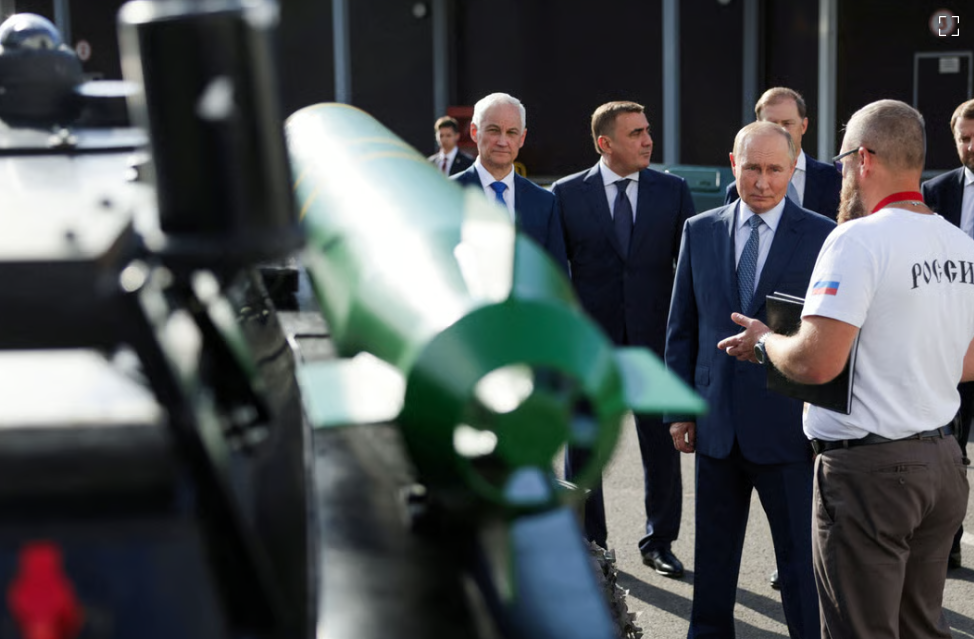The Geopolitical Cost of Chauvinism
The Kremlin suffers from Asian farsightedness. By focusing all its attention—and all its diplomatic, economic, and psychological resources—on the Far East, it has overlooked a deep systemic crisis in its own geopolitical underbelly: Central Asia and the South Caucasus.
What began as a seemingly subjective conflict with Azerbaijan—perhaps initially rooted in a confluence of strong but historically coincidental factors—quickly evolved beyond that into part of a broader, objective process: Russia’s epic retreat from so-called “near” (Central) Asia.
The core truth about the failure of Russian diplomacy in its “Near Asian” vector (Central Asia and the South Caucasus) is this: it’s not a bug, it’s a feature. In other words, it isn’t the result of a single error—whether by Lavrov, Mishustin, Vaino-Kiriyenko (now virtually one entity), or even Putin himself—but rather an inevitable consequence of the Kremlin’s overall political direction. This crisis was written into the Putinist playbook from the beginning, albeit in fine print, which we failed to read at first.
Even if the Russian Foreign Ministry were headed today by Gorchakov himself or a modern-day Talleyrand imported from abroad, they likely couldn’t reverse the decline. To change course would require remaking the entire Putinist system—something beyond the reach of even the most skilled diplomat.
At the heart of the crisis lies something invisible on the surface but essential: its connection to Putinism’s core ideology—Russian chauvinism (not to be confused with nationalism). This ideology is an emotional and exalted cult of ethnic exceptionalism and, less obviously, of superiority.
Russia’s Asian Self-Inflicted Wound
Russian chauvinism, which for years sustained Putin’s so-called stability—at least since the early 2010s—has completely spun out of control with the onset of full-scale war in Ukraine. This has created a closed-loop chauvinistic political cycle.
For years, the Kremlin stoked chauvinistic instincts in the masses. Eventually, it found itself not ahead of the locomotive but ahead of a steamroller—forced to run just to avoid being crushed by the very mob it had inflamed with propaganda.
This race with the steamroller led to anti-migrant rhetoric and policies. It’s not quite Trump-level, but it’s close—marked by both strategic miscalculation and pandering to the most base xenophobic instincts of the public. While historians will dissect its anatomy later, for now, it’s clear that anti-migrant measures were almost inevitable under the internal logic of Putinism.
But what works for Jupiter (Trump) doesn’t always work for the Bull (Putin). In the U.S., anti-migrant politics hasn’t (yet) caused a labor market crisis. In Russia, however, the hysteria clashes directly with an economy suffering from a chronic labor shortage due to demographic decline and war.
Millions of people—mostly from Uzbekistan, Tajikistan, and Kyrgyzstan—have come under pressure. Kazakhstan and Azerbaijan have also felt the impact. The hardline treatment of these migrant workers has naturally become a major domestic issue in their home countries.
The issue isn’t just that Russia’s anti-migrant hysteria became a factor—it became a trigger. As geopolitical tensions escalate due to the war, Central Asian countries have found themselves caught in a power struggle between Russia (the former colonial power), China (a rising alternative), and the West (a soft influence).
Until recently, Russia retained strong, if imperfect, influence in the region. But this chauvinistic outburst—and the policies accompanying it—appear to have pushed at least three Central Asian states and Azerbaijan to accelerate their pivot away from Russia. These governments are now rethinking their foreign policy priorities, and not in Moscow’s favor. It looks like another act of geopolitical self-sabotage. What began as a suicidal move in the West (the war in Ukraine) is continuing in the East (conflict with Central Asia and parts of the Caucasus).
This trajectory is irreversible under Putin. No diplomatic maneuver by Lavrov or investment enthusiasm from Dmitriev can overcome the toxic cloud of Russian chauvinism that now defines both domestic and foreign policy. This aura will continue to corrode intergovernmental relations, pushing Russia’s partners to make economically irrational decisions—decisions that erode even mutually beneficial ties. And nothing will change unless the entire Putinist paradigm is dismantled.




















